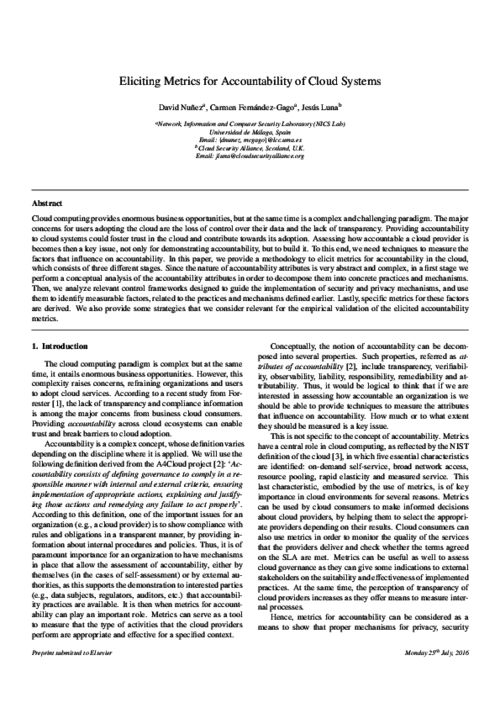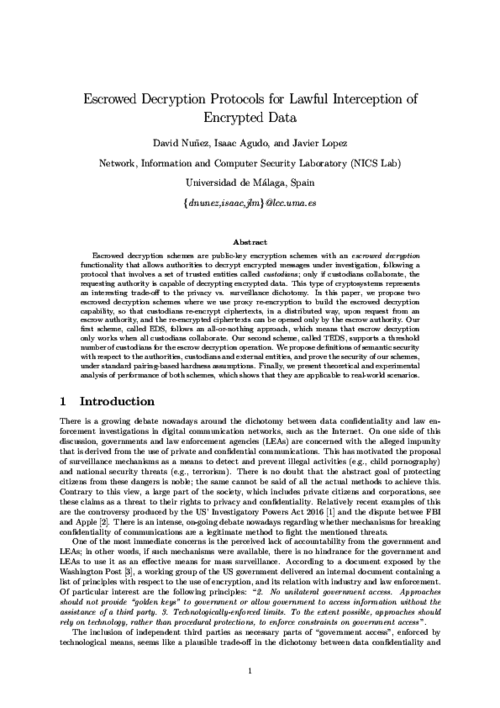 ] Year
] Year Computers & Security, vol. 62, Elsevier, pp. 149-164, 08/2016. DOI
Abstract
Cloud computing provides enormous business opportunities, but at the same time is a complex and challenging paradigm. The major concerns for users adopting the cloud are the loss of control over their data and the lack of transparency. Providing accountability to cloud systems could foster trust in the cloud and contribute toward its adoption. Assessing how accountable a cloud provider is becomes then a key issue, not only for demonstrating accountability, but to build it. To this end, we need techniques to measure the factors that influence on accountability. In this paper, we provide a methodology to elicit metrics for accountability in the cloud, which consists of three different stages. Since the nature of accountability at- tributes is very abstract and complex, in the first stage we perform a conceptual analysis of the accountability attributes in order to decompose them into concrete practices and mechanisms. Then, we analyze relevant control frameworks designed to guide the implementation of security and privacy mechanisms, and use them to identify measurable factors, related to the practices and mechanisms defined earlier. Lastly, specific metrics for these factors are derived. We also provide some strategies that we consider relevant for the empirical validation of the elicited accountability metrics.

IET Information Security, vol. 13, issue 5, IET, pp. 498 -- 507, 09/2019.
Abstract
Escrowed decryption schemes (EDSs) are public-key encryption schemes with an escrowed decryption functionality that allows authorities to decrypt encrypted messages under investigation, following a protocol that involves a set of trusted entities called `custodians'; only if custodians collaborate, the requesting authority is capable of decrypting encrypted data. This type of cryptosystem represents an interesting trade-off to privacy versus surveillance dichotomy. In this study, the authors propose two EDSs where they use proxy re-encryption to build the escrowed decryption capability, so that custodians re-encrypt ciphertexts, in a distributed way, upon request from an escrow authority, and the re-encrypted ciphertexts can be opened only by the escrow authority. Their first scheme, called EDS, follows an all-or-nothing approach, which means that escrow decryption only works when all custodians collaborate. Their second scheme, called threshold EDS, supports a threshold number of custodians for the escrow decryption operation. They propose definitions of semantic security with respect to the authorities, custodians and external entities, and prove the security of their schemes, under standard pairing-based hardness assumptions. Finally, they present a theoretical and experimental analysis of the performance of both schemes, which show that they are applicable to real-world scenarios.
